R.D. Defries award recipients
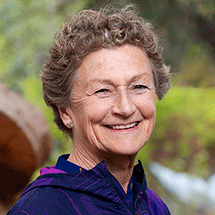
Dr. Cecilia Benoit’s extraordinary contributions to women’s health, equity and maternity care have advanced health practices for women and girls, especially those who are structurally marginalized. She has also made important contributions to Canadian society related to the health, safety, and dignity of street-involved youth, sex workers and people who use drugs. Her ongoing commitment to sharing research knowledge beyond the academy has led to greater uptake of social justice initiatives for these groups. Her research, scholarship and advocacy addressing knowledge gaps in equitable health care for Indigenous and non-Indigenous women, children and families led to the ground-breaking analysis of social factors that promote or impede the success of community-initiated care programs for pregnant women facing multiple challenges. Dr. Benoit’s research has and continues to benefit public health access, care, and delivery in Canada and beyond.
Benita Cohen - 2022 (posthumous)
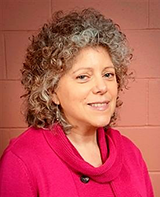
Dr. Benita Cohen, a fierce advocate for health equity and social justice, was a thoughtful and collaborative member of both the Manitoba Public Health Association (MPHA) and the Canadian Public Health Association (CPHA) as well as a Chair of CPHA’s Board of Directors. She was an Associate Professor in the College of Nursing at the University of Manitoba where she focused on mentoring students to become health equity champions. Her research projects included exploring public health nurses' role in addressing child and family poverty; an equity scan of Canadian tobacco control policy; a health equity impact assessment of a provincial parenting program; development of a conceptual framework of organizational capacity for public health equity action; and a systematic review of public health's role in advocacy for health equity. Benita received the 2013 Community Health Nurses of Canada Award of Merit for her contributions to the field of public/community health. MPHA, CPHA and many other organizations and individuals benefited from her commitment to advancing health equity through public health practice. As Chair of CPHA’s Board, she worked to strengthen public health system capacity to promote health equity and social justice. Benita was intentional in her collaboration with others, bringing people together to share their gifts in the pursuit of creating the conditions and structures for health equity. She was a researcher, teacher, mentor, and friend who will continue to inspire our efforts. Though Benita passed away on November 17, 2021, her quiet ways and persistent determination that we can and should do better will live on.
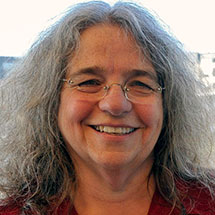
Louise Potvin is Professor of health promotion at the School of Public Health, Université de Montréal. She is an internationally recognized public health scientist who has conducted research in Canada and globally on community-based health promotion. Her work has led to policies to address health inequalities and strategies to promote evidence-based public health. As a prominent figure in the development of population health intervention research, her work has influenced health policy and has had a positive impact on the health of Canadians. Since 1989, Dr. Potvin has been a regular contributor to the CPHA annual conference. In 2010, she joined the Editorial Board of the Canadian Journal of Public Health and, since 2014, has been the Journal’s Editor-in-Chief. Under her leadership, the Journal has been modernized to become a world-class journal with a multidisciplinary editorial board that ensures the Journal’s relevance and quality. The Journal’s bilingual presence has increased; its impact factor has improved; and thought-provoking editorials have been published that reflect challenges to public health practice, education, research and administration. She has instituted three landmark editorial policies regarding sex/gender, Indigenous, and climate change research in support of CPHA’s emphasis on equity and social justice. In this way, her contributions have supported CPHA to fulfill its objective to be “the independent and evidence-based voice for public health in Canada”. For her leadership in health promotion in Canada and internationally and her substantial contributions to the Canadian Public Health Association, Louise Potvin merits CPHA’s highest honour, the R.D. Defries Award.
Dr. Cordell Neudorf - 2020
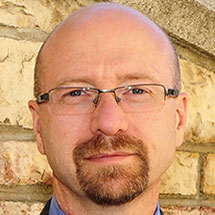
From early in his career, Dr. Cordell Neudorf demonstrated outstanding leadership. His experience and commitment to the field of public health has made him a colleague others look to for advice and an example of how to do best practice in public health. A strong believer in evidence-informed practice, he started one of Canada's first public health observatories and led the development of innovative approaches to health status reporting, embedding policy recommendations for public health, the health system, and intersectoral partners using a health-in-all-policies approach. He has been a proponent of local public health, working as a medical health officer and senior executive roles at the local level for over 25 years. He has worked to bridge the worlds of public health research and practice, and is also a professor in the Dept of Community Health and Epidemiology at the University of Saskatchewan’s College of Medicine. Dr. Neudorf has been a knowledgeable and wise teacher of public health students from the undergraduate through post-graduate levels, and an excellent researcher, combining ways to merge research and evidence with practical issues on a range of public health topics. He has championed the role of monitoring and reporting on health inequities at local, provincial and national levels as a means to provoke action at the program and policy level and evaluate their impact. He is a sought-after member for boards and advisory committees and is a renowned speaker on population health and health equity at the national and international levels. Dr. Neudorf is also an effective advocate on health equity, the determinants of health and the role of population and public health in the broader health system. He has served on the Board of Directors for the Canadian Institute for Health Information, and Chair of their Population Health Initiative Council, co-founder and President of Canada’s Urban Public Health Network, President of the Public Health Physicians of Canada, Canadian Vice President of the American Public Health Association, and a Canadian liaison member of the Regions for Health Network (WHO Europe). He served effectively as a member of the Canadian Public Health Association’s Board of Directors and as its Chair through a critical transition period and is currently a Senior Editor on the Editorial Board of the Canadian Journal of Public Health. His work with colleagues in cities across the country and other voluntary roles demonstrate his commitment to the profession of public health and he embodies the best of interdisciplinary, intersectoral and inter-jurisdictional approaches to address public health challenges.
Dr. Peter Bryce (posthumously) - 2019
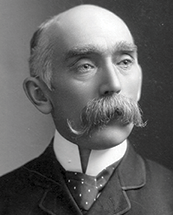
Dr. Peter H. Bryce, a charter member of the Canadian Public Health Association, was a leader in the field of public health at the turn of the 20th Century. He served as the first secretary of the Ontario Board of Health from 1882 to 1904 and wrote Canada’s first Health Code for the province of Ontario in 1884. He played an important role in Canadian history as a whistleblower who documented and released evidence of the rate of Indigenous children who were dying in residential schools.
Dr. Richard Massé - 2018
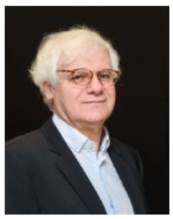 Dr. Richard Massé has devoted the majority of his career to public health. From 1998 to 2003, he was Québec's National Director of public health and Assistant Deputy Minister of Québec's Department of Health and Social Services. From 2003 to 2008, he was Chief Executive Officer of the Institut national de santé publique du Québec, Québec's national public health institute, and then the first Director of the University of Montréal’s School of public health from 2008 to 2011.
Dr. Richard Massé has devoted the majority of his career to public health. From 1998 to 2003, he was Québec's National Director of public health and Assistant Deputy Minister of Québec's Department of Health and Social Services. From 2003 to 2008, he was Chief Executive Officer of the Institut national de santé publique du Québec, Québec's national public health institute, and then the first Director of the University of Montréal’s School of public health from 2008 to 2011.
As Montréal's Director of Public Health, he emphasized two priorities: reducing social inequalities in healthcare and in chronic disease prevention. As a leading developer of Quebec’s Public Health Act — one of the first in Canada — he helped make this province a pioneer in health promotion. He also led the work that gave birth to Québec's first, national public health program, paving the way to a healthier and more equitable Canada. To Dr. Massé, prevention, health promotion and social justice are of the utmost importance.
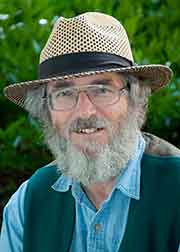 Dr. Trevor Hancock is an exemplary nominee for the R.D. Defries Award, a legend in the public health field. Arguably, no individual Canadian has done more to advance the public health importance of the ecological determinants of health. From first leader of the Green Party for both Canada and Ontario in the 1980s, to co-founding both the Canadian Association of Physicians for the Environment and the Canadian Coalition for Green Health Care, Trevor's influence has been extensive. In May 2015, he led a Canadian Public Health Association working group that wrote a comprehensive Discussion Paper on the ecological determinants of health. He is one of the founders of the global Healthy Cities and Communities movement, having co-authored with Len Duhl the original background paper for WHO Europe in 1986. He originated the term "healthy public policy" and in 1984 organized the first international conference on the topic. He has consulted and spoken on these and other health promotion and public health issues across Canada and around the world, and has published extensively. In the nine years he spent as a Medical Consultant in Population and Public Health at the BC Ministry of Health he led the development and implementation of core programs in public health and co-led the development of the country's first comprehensive clinical prevention policy. He was also Provincial co-chair of the Population Health Promotion Expert Group of the Public Health Network of Canada. In 2015 he was made an Honourary Fellow in the UK's Faculty of Public Health.
Dr. Trevor Hancock is an exemplary nominee for the R.D. Defries Award, a legend in the public health field. Arguably, no individual Canadian has done more to advance the public health importance of the ecological determinants of health. From first leader of the Green Party for both Canada and Ontario in the 1980s, to co-founding both the Canadian Association of Physicians for the Environment and the Canadian Coalition for Green Health Care, Trevor's influence has been extensive. In May 2015, he led a Canadian Public Health Association working group that wrote a comprehensive Discussion Paper on the ecological determinants of health. He is one of the founders of the global Healthy Cities and Communities movement, having co-authored with Len Duhl the original background paper for WHO Europe in 1986. He originated the term "healthy public policy" and in 1984 organized the first international conference on the topic. He has consulted and spoken on these and other health promotion and public health issues across Canada and around the world, and has published extensively. In the nine years he spent as a Medical Consultant in Population and Public Health at the BC Ministry of Health he led the development and implementation of core programs in public health and co-led the development of the country's first comprehensive clinical prevention policy. He was also Provincial co-chair of the Population Health Promotion Expert Group of the Public Health Network of Canada. In 2015 he was made an Honourary Fellow in the UK's Faculty of Public Health.
Dr. Lynn McIntyre - 2016
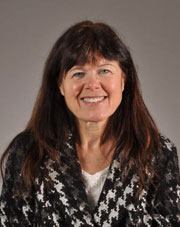 Lynn McIntyre MD, MHSc, FRCPC, FCAHS is an exceptional public health physician who has made outstanding contributions to the broad field of public health in Canada and internationally. For 30 years, Lynn brought and continues to bring a population health and health equity orientation to practice situations, policy issues, and research questions. As a hospital epidemiologist at the IWK Children's Hospital in Halifax, Lynn advocated for public health solutions: the hospital became smoke-free; the work of the mortality committee led to a helicopter transport system for the reduction of unnecessary perinatal deaths in the Maritimes; and provincial funding (a first in Canada) for Hib vaccine was secured. Lynn championed the determinants of health and influenced hundreds of health practitioners and students to consider issues of food insecurity, gender inequality and ethnicity. She has published widely in peer-reviewed journals and was recently inducted into the Canadian Academy of Health Sciences for her career achievements. A generous volunteer and active member of provincial and national public health associations, Lynn was a founding and executive member of Public Health Physicians of Canada and a member of the Medical Officer of Health competencies project. She provided outstanding guidance as President of the Public Health Association of Nova Scotia and as Board Member and Chair of CPHA. She substantially supported CPHA's objectives and under her strategic leadership, CPHA was revitalized and continues to be the independent voice for public health in Canada.
Lynn McIntyre MD, MHSc, FRCPC, FCAHS is an exceptional public health physician who has made outstanding contributions to the broad field of public health in Canada and internationally. For 30 years, Lynn brought and continues to bring a population health and health equity orientation to practice situations, policy issues, and research questions. As a hospital epidemiologist at the IWK Children's Hospital in Halifax, Lynn advocated for public health solutions: the hospital became smoke-free; the work of the mortality committee led to a helicopter transport system for the reduction of unnecessary perinatal deaths in the Maritimes; and provincial funding (a first in Canada) for Hib vaccine was secured. Lynn championed the determinants of health and influenced hundreds of health practitioners and students to consider issues of food insecurity, gender inequality and ethnicity. She has published widely in peer-reviewed journals and was recently inducted into the Canadian Academy of Health Sciences for her career achievements. A generous volunteer and active member of provincial and national public health associations, Lynn was a founding and executive member of Public Health Physicians of Canada and a member of the Medical Officer of Health competencies project. She provided outstanding guidance as President of the Public Health Association of Nova Scotia and as Board Member and Chair of CPHA. She substantially supported CPHA's objectives and under her strategic leadership, CPHA was revitalized and continues to be the independent voice for public health in Canada.
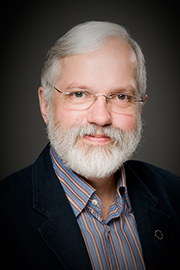 Dr. Ronald Labonté - 2015
Dr. Ronald Labonté - 2015
Ronald Labonté, BA, MA, PhD, FCAHS, holds a Tier 1 Canada Research Chair in Globalization and Health Equity and is Professor in the Faculty of Medicine, University of Ottawa and in the Faculty of Health Sciences, Flinders University of South Australia. Ron is also adjunct Professor in the Department of Community Health and Epidemiology, University of Saskatchewan. His earlier work (1974-1998) focused on health promotion, community development, community empowerment and social determinants of health, building on his 15 years' experience working with provincial, municipal and federal public health departments. During the 1990s he worked independently, providing health promotion consultancies in dozens of countries. From 1999 until 2004 he served as inaugural director of the Saskatchewan Population Health and Evaluation Research Unit, before taking up his CRC at the University of Ottawa. For the past 20 years Ron has led research and scholarship on the health equity impacts of contemporary globalization, on which he has published extensively in the scientific and popular literature. From 2005 until 2008 he chaired the Globalization Knowledge Network for the World Health Organization's Commission on the Social Determinants of Health, some of the work of which is published in the book, Globalization and Health: Pathways, Evidence and Policy (Routledge, 2009). Current research interests include health equity impacts of comprehensive primary health care reforms; health worker migration; medical tourism; global health diplomacy; globalization, trade and tobacco control; austerity and health; and trade and food security. Ron has published over 200 scientific papers and several hundred popular articles, books and book chapters.
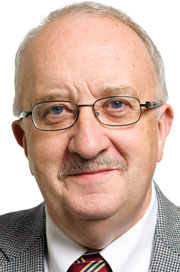 Dr. David Mowat - 2014
Dr. David Mowat - 2014
Dr. David Mowat has enjoyed an almost 40-year career in public health. Over the course of his illustrious career, David has worked at all levels of government: local/regional, provincial and federal. Whether serving as a local Medical Officer of Health or as Deputy Chief Public Health Officer for Canada, David has consistently demonstrated excellence in public health practice and has actively encouraged and supported the same from those around him.
His accomplishments and contributions to public health in Canada are many. For example, out of his recognition of the importance of adopting an evidence-informed approach to public health practice, he actively fostered the development of relationships between university researchers and public health practitioners at all levels of government and played a key role in the formation of the National Collaborating Centres for Public Health. His commitment to the ongoing development of the public health workforce has seen his involvement in the design and development of a number of graduate programs in public health throughout Canada and the establishment of Chairs of Applied Public Health. David also played an instrumental role in the development of the inaugural set of core competencies for public health practitioners. More recently, David has applied his many skills and talents to his work on the built environment; of note, he chairs the Built Environment Working Group of the Urban Public Health Network.
Dr. David Mowat is truly a consummate public health practitioner and, as such, is a worthy recipient of the R.D. Defries Award.
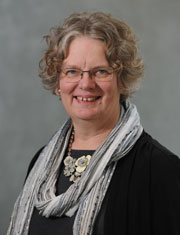 Dr. Patricia Martens - 2013
Dr. Patricia Martens - 2013
Dr. Patricia Martens began her public health career over 30 years ago as a La Leche League leader; today, she is recognized throughout Canada, and internationally, as an exemplary public health leader who a) conducts rigorous, high-quality, policy-relevant research, b) facilitates evidence-informed practice, and c) inspires students, practitioners, and researchers with her engaging approach to education.
Director of the Manitoba Centre for Health Policy (MCHP), Dr. Martens' work intersects public health research and practice. Her leadership in research excellence has been demonstrated in nationally acclaimed work on mental illness, First Nations and Métis health, and health inequities. She served as Scientific Chair for CPHA's 2009 and 2010 conferences, was Vice-Chair of CIHR's Institute of Population and Public Health's Advisory Board from 2007-2009, and holds a CIHR Applied Public Health Chair.
Dr. Martens developed the Need to Know Team, a paradigm wherein top-level planners and MCHP scientists collaborate on research to inform health policies throughout Manitoba. This approach was recognized in 2005 with the CIHR knowledge translation award for regional impact.
A gifted educator, Dr. Martens is known for her energetic and kinaesthetic approach (who can forget "connect, shift and squish!"). A favourite among University of Manitoba medical and graduate students, she has shaped students from across the country through CIHR Summer Institutes and grant-writing workshops.
Dr. Martens' outstanding work as a public health researcher, advocate, and educator demonstrates her leadership and influence in our field. She embodies the attributes of Dr. Defries and is highly deserving of this award.
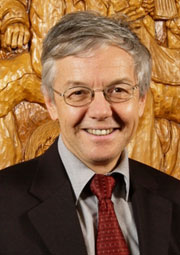 Dr. Richard Lessard - 2011
Dr. Richard Lessard - 2011
Dr. Richard Lessard is a physician and community health specialist, a member of the Collège des médecins du Québec as well as of the Royal College of Physicians and Surgeons of Canada. He is a clinical associate professor in the Department of Social and Preventive Medicine at l'Université de Montréal and the Department of Epidemiology and Biostatistics at McGill University. In August 1992, he was appointed director of public health for l'Agence de la santé et des services sociaux de Montréal. In 1998, he was also a public health consultant at the World Health Organization in Geneva, participating in the development of a health program for the 20 least developed countries. In September 2006, he was commissioned by the Public Health Agency of Canada to work with the World Health Organization in Geneva where he participated in the development of the Global Action Plan Against Cancer.
In the last 10 years, Dr. Lessard has been a member of:
- Governing Council for the Canadian Population Health Initiative, which he chaired
- Board of Directors of the Canadian Institute for Health Information
- Health Canada's Ministerial Science Advisory Board
- National Collaborating Centres for Public Health
- Board of Directors of the Institut national de santé publique du Québec (INSPQ)
Dr. Lessard is recognized for his commitment to improving the population's health status and most especially for his work on social determinants and the effects of social inequalities on health. A versatile innovator, he uses a variety of strategies to influence clinicians' day-to-day practices so that they get closer to the community environments and communicate better with the population.
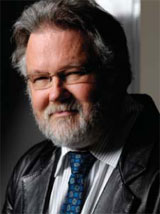 Dr. David Butler-Jones - 2010
Dr. David Butler-Jones - 2010
Dr. David Butler-Jones has made an outstanding contribution to public health in Canada and his leadership has been an important factor in the revitalization of public health in Canada.
He is Canada's first Chief Public Health Officer, appointed in 2004, and has led the establishment of the Public Health Agency of Canada. He also co-chairs the Council of the Pan-Canadian Public Health Network, where he has helped create a positive and collaborative approach.
In addition to his role within government, Dr. Butler-Jones has made an important contribution through his service to many NGOs, not least to CPHA. He was a member of the Board from 1995 and President from 1999-2001. He has also served as Vice-President of the American Public Health Association; Chair of the Canadian Roundtable on Health and Climate Change; International Regent on the board of the American College of Preventive Medicine; Member of the Governing Council for the Canadian Population Health Initiative; Chair of the National Coalition on Enhancing Preventive Practices of Health Professionals; and Co-Chair of the Canadian Coalition for Public Health in the 21st Century.
He has also worked at the international level, serving as a consultant to WHO Europe on immunization programs (2003-04), co-chairing the Technical Advisory Committee for a CIDA project with the National School of Public Health in Brazil (1998-2003) and consulting in Kosovo and Chile in 2001, among many other activities.
Dr. Butler-Jones accomplishes all of this with a gentle demeanor and a sometimes puckish sense of humour, but also with great thoughtfulness and insight. He is deeply committed to the cause of public health in Canada and internationally, and he is a most worthy recipient of CPHA's highest honour.
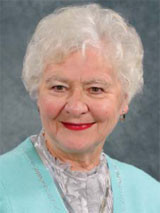 Dr. Marie des Anges Loyer - 2010
Dr. Marie des Anges Loyer - 2010
Dr. Marie des Anges Loyer graduated from high school in Ottawa and earned her diploma in nursing in 1955 (University of Ottawa), certificate in public health (University of Ottawa), baccalaureate in nursing (University of Ottawa) and then travelled to New York City to achieve in 1964 a Masters of Arts (Public Health Nursing), and in 1965 a Masters of Public Health from Columbia University. Returning to Ottawa, she earned a Masters in Education in 1968 and a PhD in 1982 from the Faculty of Education, University of Ottawa. In 1988, she completed post-doctoral studies in the assessment of psychiatric disorders at the University of St. Louis in Missouri.
Dr. Loyer began her career as a staff nurse at the Ottawa General Hospital in 1955, moving to public health in 1959 in the Prescott-Russell and Carleton Health Units. She worked as a supervisor of public health nursing in New York while studying at Columbia University. Returning to Ottawa, she joined the School of Nursing, rising to become Dean of the School (1974-78) and Associate Dean, Faculty of Health Sciences and Director, School of Nursing from 1978-80.
Throughout her academic career, Dr. Loyer's community service continued with significant leadership contributions to CPHA, of which she was the President in 1981-82; Board of Certification, Canadian Institute of Public Health Inspection; Royal Ottawa Hospital; Ottawa-Carleton District Health Council Continuing Care Board; Canadian Nurses Association and Canadian Nurses Foundation; Canadian and Ontario Region Associations of University Schools of Nursing; St. John Ambulance; Canadian Armed Forces; and the Maycourt Club.
In her retirement, she continues her volunteer work, travels, and enjoys music and gourmet cooking.

Dr. Richard Stanwick - 2009
Dr. Richard Stanwick is currently the Chief Medical Health Officer for the Vancouver Island Health Authority, formerly the Capital Health Region, in Victoria. He was born in Winnipeg, Manitoba. He completed his medical school training and received his Fellowship in Pediatrics from the Winnipeg Children's Hospital. He did a Fellowship in Community Pediatrics at McGill University, where he also received his Masters Degree in Epidemiology and Health. On his return to Manitoba, Dr. Stanwick acquired his Fellowship in Community Medicine and rose to the rank of Full Professor at the University of Manitoba. He spent two years with the Province of Manitoba, including one as the Acting Provincial Epidemiologist. He became the Medical Officer of Health for the City of Winnipeg in 1990, a post he held for five years. He joined the Capital Regional District in September 1995 and the Vancouver Island Health Authority (Capital Health Region) in April 1997.
Dr. Stanwick has done considerable research in the area of injury control, particularly in the area of burn prevention and advocacy. He was recognized by the Canadian Public Health Association in July 1997 with an Honorary Life Membership for his contributions to Public Health, and in particular injury prevention. In November 2008, Dr. Stanwick received the Lifetime Achievement Award from the BC Injury Prevention Leadership Action Network. Dr. Stanwick has an interest in photography.

Dr. Stephen J. Corber - 2008
A graduate of McGill University in Montreal, Steve Corber has been a practicing public health professional for over 30 years. He has served as the Medical Officer of Health for the Ottawa-Carleton Health Department, overseeing a dynamic team of public health professionals. He served with the Pan American Health Organization for 10 years, supporting programmes in Latin America and the Caribbean to strengthen their capacity to measure, eliminate, prevent and control infectious and chronic disease.
Dr. Corber has a long history of membership and service with CPHA. He was instrumental in supporting the start-up of CPHA's Global Health Programs and provided technical support to one of the Association's first Latin American partners in Peru. Additionally, he was the Scientific Editor of the Canadian Journal of Public Health for 4 years prior to his assignment with PAHO in Washington.
Upon his return to Canada, Dr. Corber assumed the position of Director of Public Health Practice at the Faculty of Health Sciences at Simon Fraser University, where he brings his vast experience of public health both in Canada and the international setting to the development of a new generation of public health practitioners in Canada.
Dr. Corber is an active volunteer on a number of Canadian advisory boards, including the National Advisory Committee on Immunizing Agents, the Medical Council of Canada's Preventive Medicine Test Committee, the Ontario Ministry of Health Advisory Committee on Communicable Diseases, the Health Officers' Council of British Columbia, and the International Advisory Committee to the Public Health Agency of Canada.
